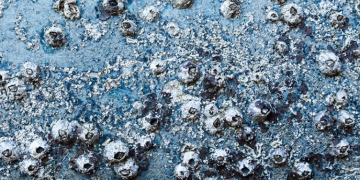MSS: Machinery-Cylinder Damage
![]() The Swedish Club has launched a new Loss Prevention initiative to assist owners. Under the ISM requirement owners are obliged to carry out monthly safety meetings or safety committee meetings onboard their vessels.
The Swedish Club has launched a new Loss Prevention initiative to assist owners. Under the ISM requirement owners are obliged to carry out monthly safety meetings or safety committee meetings onboard their vessels.
This obligation stems from Chapter 5 of the ISM Code: “Master’s responsibility and authority” and furthermore from “5.1.2, motivating the crew in the observation of that policy”. The obligation can also be derived from the Code of “Safe Working Practices for Merchant Seamen”, where it is stated that the safety committee should meet regularly: “3.13.2, The frequency of meetings will be determined by circumstances but as a general guideline, the committee should meet about every 4-6 weeks”.
The Club will publish on a monthly basis a new “Monthly Safety Scenario” (MSS) to assist owners in their efforts of complying with the above regulations. Alternative scenarios will be uploaded in SCOL.It will be easy to download the MSS and enter the written conclusions from the meeting and send feedback to the shorebased organisation.
The Monthly Safety Scenario (MSS) for May is Machinery-Cylinder Damage.
The vessel, an oil tanker that had been delivered 8 months earlier, arrived at the port in themorning and the cargo operation commencedstraight away.The chief engineer had delegatedsome routine maintenance jobs to the engineers. There was no routine for discussing dailyjobs during a morning meeting. Instead thechief engineer printed a list of jobs from thePMS (Planned Maintenance System), which hegave to the engineers to complete.
The 1st Engineer had planned to start cleaningthe main engine’s air coolers, which he informedthe chief engineer about. He also informed the3rd Engineer who was the duty engineer in themorning that he was working on the main engineand that he would inform him when he wasfinished. No signs were posted or any warningwritten in the log-book.
The 1st Engineer started to clean the aircoolers with water and chemicals, which takes aminimum of six hours. He was delayed with thejob and had not completed it before dinner; hisplan was to wash the air coolers after dinner withfresh water and let them dry overnight.It is a company requirement to inform theDPA if the vessel is immobilised, this was notdone even though the main engine was out ofcommission. It is also a company requirement tohave a toolbox meeting when critical jobs arecarried out, which was not held either.
To read the rest of the Cylinder Damage, Safety Scenario click here.
Source: The Swedish P&I Club


























































